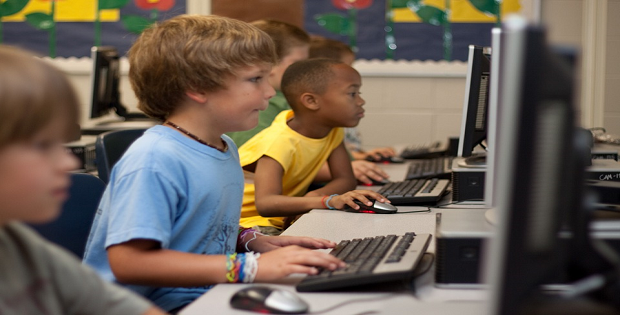Best Internet Safety Rules for Kids
Last Updated on 5 months by Touhid
Kids are safe on the internet? As a parent, you should take some preventive measures to save your kids on the internet. That’s why in this post, we’ve provided the Internet safety rules for kids.
The Internet has become a very important part of our kids. They can easily search and learn any topic on the internet. Kids are taking full advantage of using the internet.
Table of Contents
Internet Safety Rules for Kids
There are different types of cyber threats on the internet. As a parent, you may be aware of the threats, but your children are not aware of them.
Here, we have mentioned Internet safety rules for Kids, which will help your kids to be safe on the Internet. This particular internet safety rule or guideline will save you and your family members.
- Use Strong Passwords.
- Never share your passwords with others
- Don’t give out your personal information.
- Careful about Downloading.
- Signup for Social Media site
- Never click on Pop-ups advertisement
- Set a time rule for internet browsing.
- Use antivirus software.
- Monitor your Kids online activities.
- Tech your kids about phishing
Use strong Passwords
Using strong passwords is the first internet safety rule for kids. Cyber security specialists suggested that use strong passwords on your accounts to be safe on the internet.
So, as a parent, you should describe to your kids the importance of using strong passwords. Why will your kids use strong passwords instead of weak passwords?
In that case, you can help your kids how to create a strong password with a combination of uppercase letters, lowercase letters, numbers and special characters.
Expert Tips
- Ensure that password length is at least 10 characters long.
- Create a password with the combination of uppercase letters (A – Z), lowercase letters (a – z), numbers (0 – 9), and special characters (@, #, $, %, ^, (,), &, *!).
- Change your passwords regular basis (i.e., Between 30 and 180 days).
Learn More about How to create a strong password?
Never share your password with others
After creating a strong and unique password, kids will not share their password with anyone. If kids share their passwords with others, then they (shared person) can do anything using their kid’s account.
So, never share your password with others (except your parent) to save your account as well as internet safety.
Don’t give out your personal information
Kids will never give out their personal information such as name, father’s name, father’s office details, house address, school name, and telephone number to anyone on the internet.
In some cases, kids need to give their personal information such as at school. In that case, kids can give this information but first inform their parents.
Careful about Downloading
This is another important internet safety rule for kids. Parents should teach their kids about website security when they browse on internet or download software or apps.
If your kids are not aware of website security and download software from vulnerable websites, then your kids can be compromised by hackers. A malicious or vulnerable website may contain viruses and malware to hack your sensitive information.
Expert Tips
- A website is secure by SSL (Secure Socket Layer) In the URL, you can see that a website starts with https:// such as https://cyberthreatportal.com
Signup for Social Media site
There are different types of social media websites on the internet such as Facebook, Twitter, LinkedIn, and MySpace. Each type of website has age requirements to sign up for a new account.
For example, Facebook requires at least 13 years old to create a new account. If someone creates an account with a false age it is a violation of Facebook’s terms and conditions.
Learn more about Facebook Policies and Reporting.
However, if your kids create an account on Facebook, then as a parent you can show your children how to delete their Facebook account.
So, these age requirements rules will be helpful for parents to protect their kids on the internet.

Never click on Pop-ups Advertisement
Popups or ads may have malicious links and if you click on it, may redirect to you a vulnerable website to gain personal details. A malware or virus can be downloaded and installed on your computer to compromise your information when click on that link.
So, as a parent teach your kids to avoid clicking on pop-ups, ads, suspicious links and attachments to internet safety. Parents can also block the pop-up advertisements and most of the browsers have that process.
You can also install Adblock which is one of the most popular ad blockers on different browsers such as Firefox, Chrome, Safari, Android, and iOS phones.
Set a time rule for Internet browsing
This is another important internet safety guide for teenagers to set a time rule for internet browsing. Parents will set up a time rule for internet browsing but discuss it with their kids. It is not suggested that kids will browse the internet for a long time.
Use Antivirus Software
Parents should install reliable antivirus software on their kid’s computers or phones to keep the internet safe. The antivirus software scans every document (such as images, videos, pdf) downloaded from the internet and it protects your device from viruses, malware, or spyware.
You can install the following anti-virus software on your kid’s device and keep updated with the latest version. After installing anti-virus software, you will teach your kids how to scan documents and drive.
Monitor your Kids online activities
This may be a special internet safety rules for kids or teenagers. You must set a time rule for internet browsing. Parents should ensure that their kids do not view inappropriate content on the internet or don’t post unsuitable content on social media sites. It is better if you can monitor your Kids online activities regularly to protect your kids.
Tech your kids about Phishing
Phishing is a type of cyber-attack which attempts to gain your confidential information. In this attack, the attacker will send a phishing email to your email account in order to compromise sensitive information.
You may be aware of phishing attacks, but your children know that scam? So, please teach your kids about phishing attacks and tell them not to reply with suspicious emails or not to click on malicious URLs.
Learn more about Phishing is what type of attack?
Learn more about How to Protect Phishing?
Conclusion
Finally, the above internet safety rules or guideline will protect your kids from cyber threats and inappropriate activities. Your kids will make more effective use of the internet for learning and exploring. Hope this article the Internet Safety Rules for Kids will be helpful for you!
Affiliate Disclosure : Cyberthreatportal is a participant in the Amazon Services LLC Associates Program, an affiliate advertising program designed to provide a means for website owners to earn advertising fees by advertising and linking to amazon.com.





